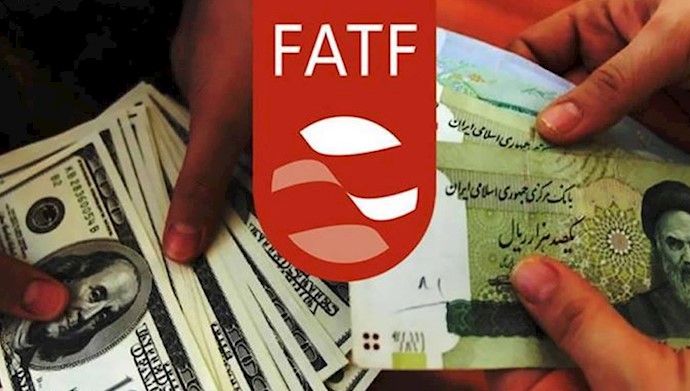Analysis by PMOI/MEK
Iran, May 30, 2019 – In its latest session last February, the Financial Action Task Force (FATF), the world’s de facto financial transaction transparency body, set an ultimatum for Iran to implement the body’s provisions until its next session in June. Otherwise, the mullahs’ regime will be blacklisted.
The remaining bills are what is called the anti-money laundering and combating the financing of terrorism (CFT) bills.
FATF’s February public statement after its session concluded as:
“If by June 2019, Iran does not enact the remaining legislation in line with FATF Standards, then the FATF will require an increased supervisory examination for branches and subsidiaries of financial institutions based in Iran. The FATF also expects Iran to continue to progress with enabling regulations and other amendments.”
These bills, collectively known as the Palermo bills along with two other bills, have already made it through the Iranian regime’s Majlis (parliament). However, the regime’s Guardian Council has rejected the former two as “unconstitutional” and called on the Majlis to make amendments.
The Majlis, in turn, referred the bills (after some amendments and approval) to the Expediency Discernment Council, a body supposedly tasked to mediate between different state branches in controversial matters.
While the Expediency Council was supposed to review and decide the fate of the two remaining bills, recent news reports suggest that the review of these bills has been removed from the council’s agenda.
According to Iran’s state media, Expediency Council member Seyed Mohammad Sadr and Majlis member Mostafa Kavakebian have confirmed this news in recent days. Other Expediency Council members, however, have denied it.
The latest report indicates that Hossein Mozafar, a minister of education in Mohammad Khatami’s government (1997-2005) and a current Expediency Council member, said that reviewing the FATF bills is still on the council’s agenda. However, the chances of approval are virtually zero.
Gholamreza Mesbahi-Moghaddam, a former Majlis member and current Expediency Council member, says there is no insistence on the part of the government for the council to put the bills in its agenda. Currently, this issue is not on their agenda, he added.
“While the regime is under U.S sanctions and other countries and companies are under pressure [by the U.S.], [joining the FATF] completely means that we give the enemy the ways we follow to circumvent the sanctions,” Mesbahi-Moghaddam continued.
In an interview with state-run Borna news agency on May 27, Mohammadreza Aref, another Expediency Council member and close to Iranian regime President Hassan Rouhani’s so-called “moderate” camp, responded to a question on whether the FATF has been removed from the council’s agenda.
“The discussion was serious and there are disagreements and general concerns about these two bills (anti-money laundering and CFT) in the Expediency Discernment Council. Almost everyone agrees that joining the FATF has no benefits for us. However, the objective is to prevent damages so that we can have an economic exchange with the world. Therefore, we need to conform to this mechanism,” he explained.
“Before the Persian new year [March 21], the mood in the Council was such that if the bills were voted on, they wouldn’t pass. It was natural for the Council to send [the bills] to the commission so there is more study because until now the decisions of the council have generally been made on the basis of consensus,” he added.
On the other side of the political aisle and in stark contrast to the regime’s so-called reformists who insist on approving the FATF bills, Iranian regime Supreme Leader Ali Khamenei’s camp is hell-bent on a completely opposing position. Considering the fact that the European financial mechanism called INSTEX had no fruits, it is senseless to join the FATF, Khamenei loyalists believe.
“Some people in the country suggest that if we don’t join the FATF, we cannot conduct any financial transactions. We should ask this group of people whether the INSTEX that the Europeans have launched for you was able to facilitate international financial transactions?” said Hadi Afghahi, a political analyst close to Khamenei’s camp.
“Accepting and fully approving the FATF by us means that intelligence agencies who have a den in the FATF will be able to meddle in all our economic secrets, banking exchanges, and financial circulation. The FATF convention is not an issue that we can put to a referendum. In the future, they are going to want to put everything that is not in the country’s interest in a referendum. Is it the appropriate time for a referendum? We can’t put everything to referendum!” he added.





